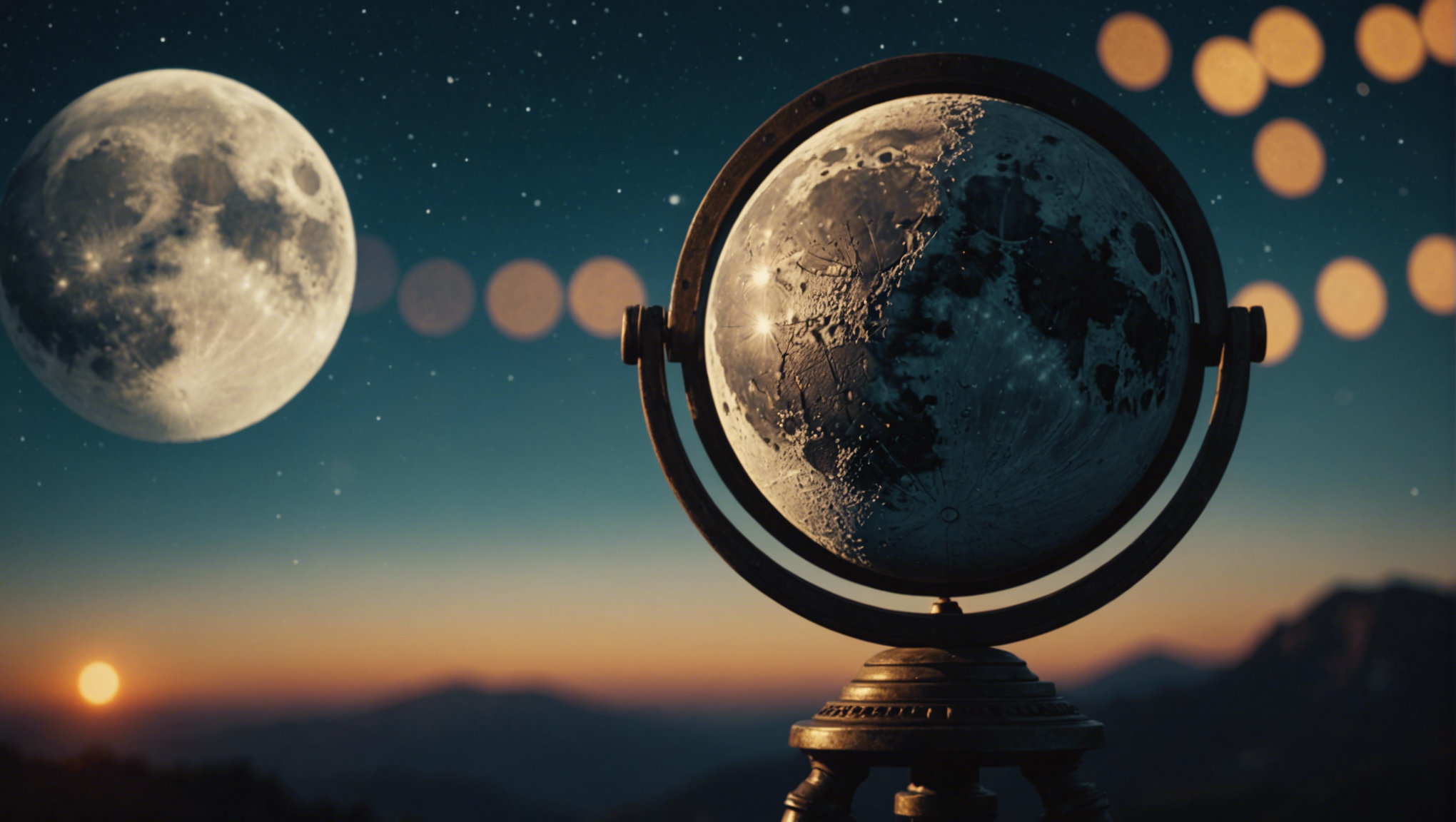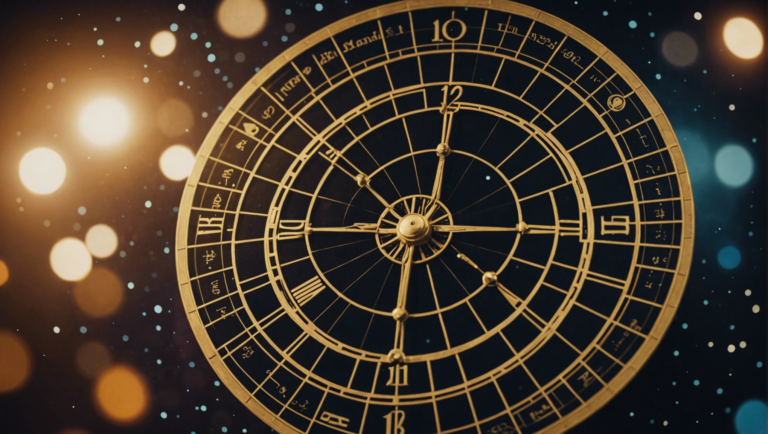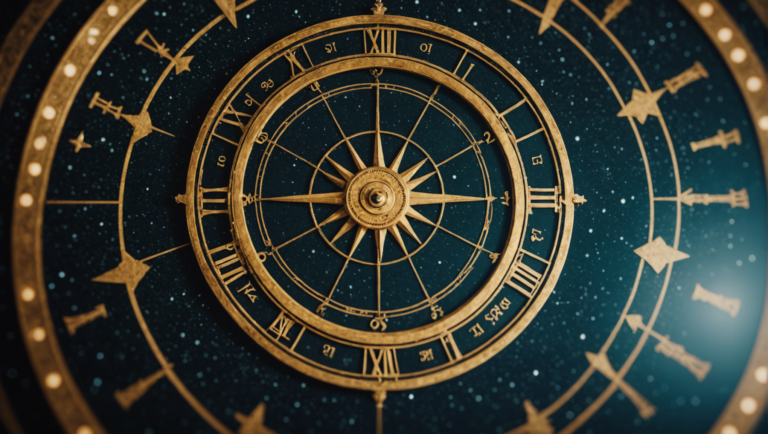What Sign Is The Moon In Today Vedic Astrology
The Impact of Today’s Moon Sign in Vedic Astrology on Your Zodiac
Understanding the Significance of the Moon’s Position in Vedic Astrology
Vedic astrology, also known as Jyotish Shastra, holds the moon’s position at the time of one’s birth in high esteem, considering it crucial in defining an individual’s emotional and psychological makeup. Unlike its Western counterpart, which emphasizes the sun sign, Vedic astrology places greater importance on the moon sign, arguing it offers a more intimate and accurate portrait of an individual’s inner world. With the moon completing its zodiac cycle in about 28 days, each day sees it positioned in a different sign, bringing nuanced influences to the collective and individual realms. Let’s delve into how today’s moon sign can profoundly influence the energy surrounding us and impact each zodiac sign in unique ways.
The Moon’s Embrace: Navigating Emotional Waters
The moon’s journey through the zodiac imbues the collective consciousness with its characteristic emotional and intuitive energy. Depending on its current sign, its influence can span from fostering deep introspective spells to prompting a surge of outgoing, expressive vibes.
A sign’s elemental nature—fire, earth, air, or water—further color these lunar effects. Fire signs (Aries, Leo, Sagittarius) may experience an upsurge in courage and initiative, whereas earth signs (Taurus, Virgo, Capricorn) could find themselves seeking stability and tangible results. Air signs (Gemini, Libra, Aquarius) are likely to engage in intellectual pursuits and social interaction, while water signs (Cancer, Scorpio, Pisces) may navigate deeper emotional currents and intuitive insights.
Lunar Transitions: A Guide for Each Zodiac
As the moon transitions from one sign to the next, its impact varies greatly among the zodiac signs, influencing everything from our mood swings to our interaction styles. A keen observation of these shifts can provide valuable insight into the best times for initiating projects, nurturing relationships, or engaging in self-reflection.
For example, when the moon is in a fire sign, Aries individuals might feel particularly empowered, ready to embark on new ventures with unmatched zeal. Conversely, those with their moon in water signs might use this fiery period for introspection, channeling the energy inward.
Rituals and Practices: Aligning with Lunar Energy
Aligning personal practices with the moon’s phases and its sign can enhance one’s spiritual and emotional well-being. During a moon in earth signs, focusing on grounding activities like meditation or spending time in nature can be particularly rewarding. Similarly, periods when the moon occupies air signs could be ideal for intellectual pursuits and social gatherings, harnessing the communicative and intellectual stimulation these signs offer.
The Moon’s Illumination: Insight and Clarity
The moon’s position in Vedic astrology is not solely about prediction or influence; it’s a mirror reflecting our deepest desires, fears, and potential. By understanding the moon’s sign on any given day, individuals can gain insights into the emotional and spiritual currents influencing their lives, allowing them to navigate their day-to-day activities with greater awareness and sensitivity.
The moon’s daily journey through the zodiac serves as a celestial guide, offering subtle yet profound insights into the fabric of our lives. Whether it’s embracing the fiery initiative spurred by a moon in Aries or delving into the emotional depths during a Pisces moon, understanding the lunar influence provides a valuable tool for personal growth and emotional balance.
Key Takeaways
Vedic astrology presents a rich, nuanced perspective on the celestial influences shaping our lives, with the moon playing a central role in illuminating our inner landscape. By tuning into the moon’s sign and its transitions, individuals can align themselves more closely with the cosmos, facilitating a harmonious balance between the external world and the inner self. Engaging with the moon’s energies allows for a deeper connection to the universal forces at play, offering guidance, insight, and reflection in our journey through life.
Deciphering the Lunar Effects: How Moon Signs Influence Your Daily Life
Understanding Vedic Astrology and the Moon’s Influence
Vedic astrology, an ancient science from the Indian subcontinent, dives deep into the cosmic dance of planets and celestial bodies, unraveling their profound impact on human lives. Central to this practice is the Moon, a celestial entity that, unlike its astrological counterpart in the West, holds a place of unparalleled importance. The Moon, or Chandra as it is known in Sanskrit, influences the emotional and psychological fabric of our being, making its position at the time of our birth crucial in charting our life’s path.
The Role of the Moon Sign in Daily Life
Unlike the Sun sign, which delineates our outward personality, the Moon sign in Vedic astrology offers insights into our inner self, emotions, instincts, and unconscious tendencies. It is the lens through which we view the world, affecting how we process feelings, interact in relationships, and find comfort in the familiar or the new. Knowing the Moon sign can be a powerful tool in understanding the nuances of our daily behaviors and predispositions.
Today’s Lunar Placement: A Daily Guide
As the Moon transitions through the zodiac, its position—commonly asked as "what sign is the moon in today in Vedic astrology?"—presents a dynamic influence that colors our daily life. This celestial movement affects everyone differently, depending on their natal Moon sign and current life circumstances. Checking the Moon’s transit can provide valuable foresight into the mood of the day, offering guidance on when to push forward or take a step back.
The Moon and Emotional Well-being
The Moon’s daily journey through the signs and its impact on our emotional state cannot be overstated. When the Moon aligns with our natal Moon sign, we may feel an inherent sense of equilibrium and emotional stability. Conversely, its transit through signs that form challenging aspects to our natal Moon can stir up unrest, mood swings, or feelings of unease. By being mindful of the Moon’s current sign, one can better navigate these emotional ebbs and flows.
Practical Tips for Harnessing Lunar Energy
- Meditation and Mindfulness: Align your meditation practice with the Moon’s sign. For instance, when the Moon is in water signs, focus on emotional release and intuition.
- Lifestyle Adjustments: Adapt your diet, exercise, and social interactions based on the Moon’s sign to enhance well-being. For example, earth signs favor grounding activities and nourishing foods.
- Emotional Awareness: Acknowledge and embrace the feelings associated with the Moon’s current transit. This conscious recognition allows for a healthier processing of emotions.
The Significance of Moon Phases
In addition to its zodiacal position, the phase of the Moon—from new to full—plays a critical role in determining the nature of its influence. Each phase marks a distinct energy cycle, conducive to various personal and spiritual practices. The full moon is often associated with culmination and release, while the new moon signifies beginnings and intentions. Tuning into these lunar cycles can amplify personal growth and self-awareness.
Understanding the Moon’s daily sign in Vedic astrology opens up a rich tapestry of insights into our emotional and psychological landscape. It serves as a reminder of the intricate link between the cosmos and our individual lives, guiding us toward greater harmony and well-being. Whether you are a seasoned follower of Vedic astrology or a curious newcomer, the Moon’s daily journey offers a unique lens through which to view yourself and the world around you. Embracing its rhythm can lead to profound discoveries and emotional balance, illuminating the path to personal evolution and fulfillment.
The Historical Roots of Moon Sign Astrology in Vedic Tradition
The Ancient Origins and Evolution of Vedic Astrology
Vedic astrology, also known as Jyotish Vidya, is an ancient practice that dates back thousands of years, deeply rooted in the Indian subcontinent’s spiritual traditions. Its inception is intertwined with the sacred scriptures known as Vedas, which are the oldest texts of Hinduism, composed in early Sanskrit and containing a vast array of knowledge spanning from ritualistic practices to philosophical musings.
The Moon’s Pivotal Role in Vedic Astrology
Central to Vedic astrology is the significant emphasis on the Moon sign, sometimes even more than the Sun sign, which is more commonly focused upon in Western astrology. The Moon, in Vedic tradition, is considered to represent the mind, emotions, and the deeper aspects of our personalities. The position of the Moon at the time of birth, therefore, holds profound implications for an individual’s emotional comportment, instincts, and subconscious predispositions.
Deciphering the Moon’s Messages
According to Vedic astrology, the Moon moves swiftly across the Zodiac, spending approximately two and a half days in each sign. This quick transition plays a crucial role in the intricate tapestry of an individual’s astrological chart, influencing various life aspects, from personal temperament to relationship dynamics and even potential health tendencies.
Understanding one’s Moon sign offers insightful revelations into one’s inner world, highlighting innate tendencies, emotional needs, and the inherent nature one may exhibit over a lifetime. This knowledge serves as a guiding light, offering not just predictions but a deeper understanding of one’s karmic path, challenges, and strengths.
Nakshatras – The Stars Beyond the Signs
Adding another layer of depth to the Moon’s significance in Vedic astrology are the Nakshatras or lunar mansions. The 27 Nakshatras, each ruled by a different constellation and deity, further refine the Moon’s influence, offering even more precise insights into an individual’s disposition and life events. This unique feature of Vedic astrology allows for a nuanced interpretation of the celestial influences, making it distinctively rich and complex.
The Timeless Wisdom of Vedic Moon Sign Astrology
The enduring legacy of Vedic astrology lies in its holistic approach, considering not just the planetary alignments but the interconnectedness of the cosmos, Earth, and the individual. The Moon sign, with its profound influence on the human psyche, acts as a mirror reflecting the ancient wisdom encapsulated in the Vedic texts. By exploring the historical roots of Moon sign astrology within the Vedic tradition, one gains not just astrological insights but a deeper appreciation for one of humanity’s oldest knowledge systems.
Navigating Life with Lunar Guidance
Today, the practice of Vedic astrology, with its focus on the Moon sign, continues to offer solace, direction, and enlightenment to millions worldwide. In an age where the quest for self-understanding and spiritual growth has never been more pronounced, the timeless teachings of Vedic astrology provide a beacon of hope and a roadmap for navigating the complexities of life.
The Confluence of Astrology and Modernity
In bridging the ancient with the contemporary, Vedic astrology remains a vibrant and evolving tradition, adapting to the needs of modern seekers while staying true to its roots. The Moon sign’s role within this system underscores the enduring human quest for knowledge, connection, and understanding, making Vedic astrology a seminal bridge between the past and the present, the celestial and the terrestrial.
Understanding Moon Sign Transitions: A Guide to Navigational Emotional Landscape
In the realm of Vedic astrology, the Moon’s placement in one’s birth chart is of paramount significance. Unlike the Sun sign, which symbolizes one’s ego and essence, the Moon sign offers a profound insight into an individual’s emotional nature, instincts, and unconscious preferences. This celestial body’s constant shifts through the zodiac not only influence the collective mood but also guide personal emotional landscapes.
The Significance of the Moon in Vedic Astrology
Vedic astrology, also known as Jyotish Shastra, places a strong emphasis on the Moon sign, or "Chandra Rashi,” believing it to hold the key to understanding one’s mind and emotions. The Moon represents the mind, maternal influences, and the capacity for adjustment and receptivity in one’s life. A deep dive into the Moon’s current sign can unveil underlying emotional currents, offering a mirror to our inner states and potential ways to navigate through them.
Deciphering Emotional Shifts through Moon Sign Transitions
Each zodiac sign the Moon transits through brings to the forefront different emotional energies and themes. For instance, when the Moon is in Aries, one might feel a surge of assertiveness and impulsiveness, whereas a transit through Cancer could emphasize feelings of nurtility and emotional security. These transitions are crucial for understanding the fluctuating nature of our moods and emotional responses.
Utilizing the Moon’s Wisdom for Emotional Well-being
Engaging with the Moon’s transitions can be a powerful practice for emotional health and self-awareness. By observing the Moon’s sign and its aspects to other planets, one can gain insights into the collective emotional fabric and how it might influence personal feelings and behaviors. This understanding can encourage emotional resilience, as it provides a cosmic context for personal experiences, assisting individuals in navigating their emotions more gracefully.
Strategies for Aligning with the Moon’s Energy
-
Journaling during Different Moon Phases: Keeping a journal can serve as a valuable tool for reflecting on one’s inner emotional states and how they might correspond with the Moon’s zodiacal position. Noting down feelings and experiences during various Moon phases can reveal patterns and triggers, aiding personal growth and emotional understanding.
-
Moon Sign Meditation and Reflection: Allocating time for meditation or reflection based on the current Moon sign can enhance emotional attunement. This practice can involve focusing on the themes associated with the Moon’s current sign, promoting inner balance and harmony.
-
Adapting Activities According to the Moon’s Sign: Aligning activities and practices with the Moon’s transit can amplify emotional well-being. For example, when the Moon is in Taurus, engaging in comforting and sensory experiences can be particularly fulfilling, whereas Moon in Scorpio might call for deeper emotional introspection and transformational work.
The Role of the Moon in Personal Evolution
Understanding and working with the Moon’s transitions is not just about emotional regulation—it’s also a pathway to personal evolution and spiritual growth. The Moon’s journey through the zodiac offers a rhythmic cycle that, when harmonized with, can lead to profound insights into the self and the universe. It embodies the cyclical nature of life and the incessant flow of emotions, serving as a celestial guide through the inner landscapes of our beings.
As we deepen our connection with the Moon and its movements, we uncover layers of our psyche that were previously obscured, enabling a more authentic expression of our emotional selves. Recognizing the Moon’s influence on our emotional state empowers us to foster greater self-awareness and empathy, enriching our journey through life.
In essence, the Moon’s transitions through the zodiac in Vedic astrology provide invaluable insights into the emotional nuances that shape our daily experiences. By tuning into the Moon’s rhythm, we can navigate our emotional landscapes with greater ease and consciousness, leading to a harmonious and fulfilling existence.
The Science Behind Vedic Astrology: Bridging Astronomy and Mysticism
Bridging the Gap Between Ancient Wisdom and Modern Science
Vedic astrology, also known as Jyotish Shastra, originates from the ancient texts of India, known as the Vedas. This profound system of astrology differs significantly from its Western counterpart, offering a unique blend of mysticism intertwined with the scientific principles of astronomy. The practice of Vedic astrology is not merely about predicting the future; it’s an intricate science that maps out an individual’s life path based on the cosmic placement at the time of their birth.
The Astronomical Underpinnings of Vedic Astrology
At the heart of Vedic astrology lies the precise calculations of planetary positions and their astrological impact on individuals. Unlike the tropical zodiac system used in Western astrology, which is aligned with the seasons, Vedic astrology employs the sidereal zodiac, based directly on the positions of constellations in the sky. This fundamental difference necessitates a keen understanding of astronomy to accurately calculate a person’s Vedic chart.
Astrologers meticulously chart the planets’ positions against this backdrop, offering insights that reflect the cosmic harmony at the time of one’s birth. It’s a practice deeply rooted in the calculations and observations of the heavens, making astronomy an indispensable part of Vedic astrology’s framework.
Mysticism Interwoven with Scientific Precision
What sets Vedic astrology apart is its remarkable integration of mystic elements with this scientific foundation. Each planet and celestial body is seen not just as a physical entity but as a bearer of divine energies and influences. This mystical aspect extends to the belief in karma and reincarnation, central themes in Vedic thought, purportedly influenced by the planetary arrangements.
This synthesis of astronomy and mysticism allows for a holistic view of an individual’s life, encompassing physical, spiritual, and karmic dimensions. It’s a comprehensive approach that looks beyond the material world, seeking to explain life’s complexities through the lens of cosmic design.
The Relevance of Vedic Astrology in the Modern World
Despite its ancient roots, Vedic astrology remains profoundly relevant today, offering individuals bespoke insights into their lives. The system provides guidance on personal, professional, and spiritual dilemmas, enriched by the weight of astrological evidence and the depth of mystical interpretation. It’s a tool for self-understanding, growth, and navigating the uncertainties of life with the wisdom of the stars.
Expert Insight into Vedic Astrology’s Methodology
Vedic astrology’s methodology is meticulous and complex, requiring years of study and practice to master. Astrologers analyze the birth chart or ‘Janma Kundali’ created at the moment of an individual’s birth, offering a snapshot of the heavens. This chart encompasses various ‘Houses’, ‘Signs’, and ‘Planets’, each contributing to the tapestry of an individual’s fate and character.
The predictive aspect, termed ‘Phalit Jyotish’, utilizes these elements to forecast future trends and events in a person’s life. However, it is the philosophical and spiritual dimensions that imbue Vedic astrology with its distinctive character, offering not just predictions but pathways to understanding life’s deeper purpose and lessons.
: A Confluence of Sky and Spirit
Vedic astrology stands as a testament to the human quest for knowledge, bridging the tangible world of science with the intangible realm of spirituality. In its essence, it embodies the confluence of sky and spirit, offering a comprehensive system that spans across the physical and metaphysical planes. Its continued practice and relevance underscore a universal desire to seek guidance from the cosmos, reflecting the timeless nature of this ancient science. In embracing Vedic astrology, one steps into a realm where astronomy and mysticism dance together, etching the infinite wonders of the universe into the fabric of human life.
Conclusion
Exploring the profound depths of Vedic astrology reveals how the moon sign, or the position of the moon in the zodiac at any given time, casts long shadows over our daily lives, shaping our emotional and spiritual well-being. The celestial dance of the moon through the cosmos, as observed and interpreted through centuries-old Vedic traditions, offers a unique lens through which we can view our own lives, our dispositions, and our inevitable encounters with the cyclical nature of existence.
The impact of today’s moon sign in Vedic astrology on our zodiac signs is far from superficial. It deeply influences our emotional core, coloring our perceptions, reactions, and interactions with the world around us. This astral influence guides us, sometimes imperceptibly, through life’s myriad challenges and opportunities. As the moon progresses through its phases and stations, it holds a mirror to our inner emotional truths, offering insights that, when heeded, can lead to profound personal growth and understanding.
Understanding how moon signs influence our daily life requires a blend of introspection and awareness. Deciphering these lunar effects allows us to navigate our emotional landscapes with greater foresight and clarity. Recognizing the influence of the moon sign on our day-to-day existence helps in harmonizing our actions with our deeper emotional undercurrents, thereby enabling more meaningful interactions with others and fostering inner peace.
The historical roots of moon sign astrology in the Vedic tradition are deeply entwined with the cultural and spiritual fabric of ancient societies. These roots provide a timeless wisdom that still resonates with many today. The sages and astrologers of yore charted the heavens with meticulous care, understanding that the cosmos reflects the intricate interplay of forces governing life on Earth. This rich heritage of astronomical observation and astrological interpretation offers a unique perspective on the human condition, bridging the material and the spiritual, the seen and the unseen.
Grasping the concept of moon sign transitions and their significance in our lives is akin to acquiring a roadmap for navigating our emotional and psychic landscapes. These transitions are more than mere celestial events; they are pivotal moments that prompt reflection, instigate change, and encourage growth. By understanding these shifts, we can better anticipate and manage the ebbs and flows of our emotional states, leading to improved well-being and more harmonious relationships with others.
The science behind Vedic astrology, marrying astronomy and mysticism, stands as a testament to humanity’s enduring quest to find meaning in the movements of the celestial bodies. This confluence of hard science and esoteric knowledge challenges us to broaden our perspectives, inviting a deeper appreciation for the intricate and often mysterious connections between the cosmos and our personal lives. It is a domain where logic intersects with intuition, offering insights that are both profound and practical.
As we journey through life under the ever-watchful eye of the cosmos, it is clear that the moon, with its cyclical voyage across the heavens, plays a pivotal role in shaping our destinies. By delving into the wisdom of Vedic astrology, we unlock the potential to lead more fulfilling lives, attuned to the cosmic rhythms that govern our world. Whether it is through understanding the impact of today’s moon sign on our zodiac, deciphering the subtle influences of lunar transitions, exploring the historical richness of moon sign astrology, or integrating the science and mysticism of this ancient discipline, we embark on a path of self-discovery and enlightenment. The journey through the enchanting realm of Vedic astrology, guided by the luminescent glow of the moon, promises a deeper connection with the universal forces at play and a richer, more nuanced understanding of our place within this vast cosmos.







